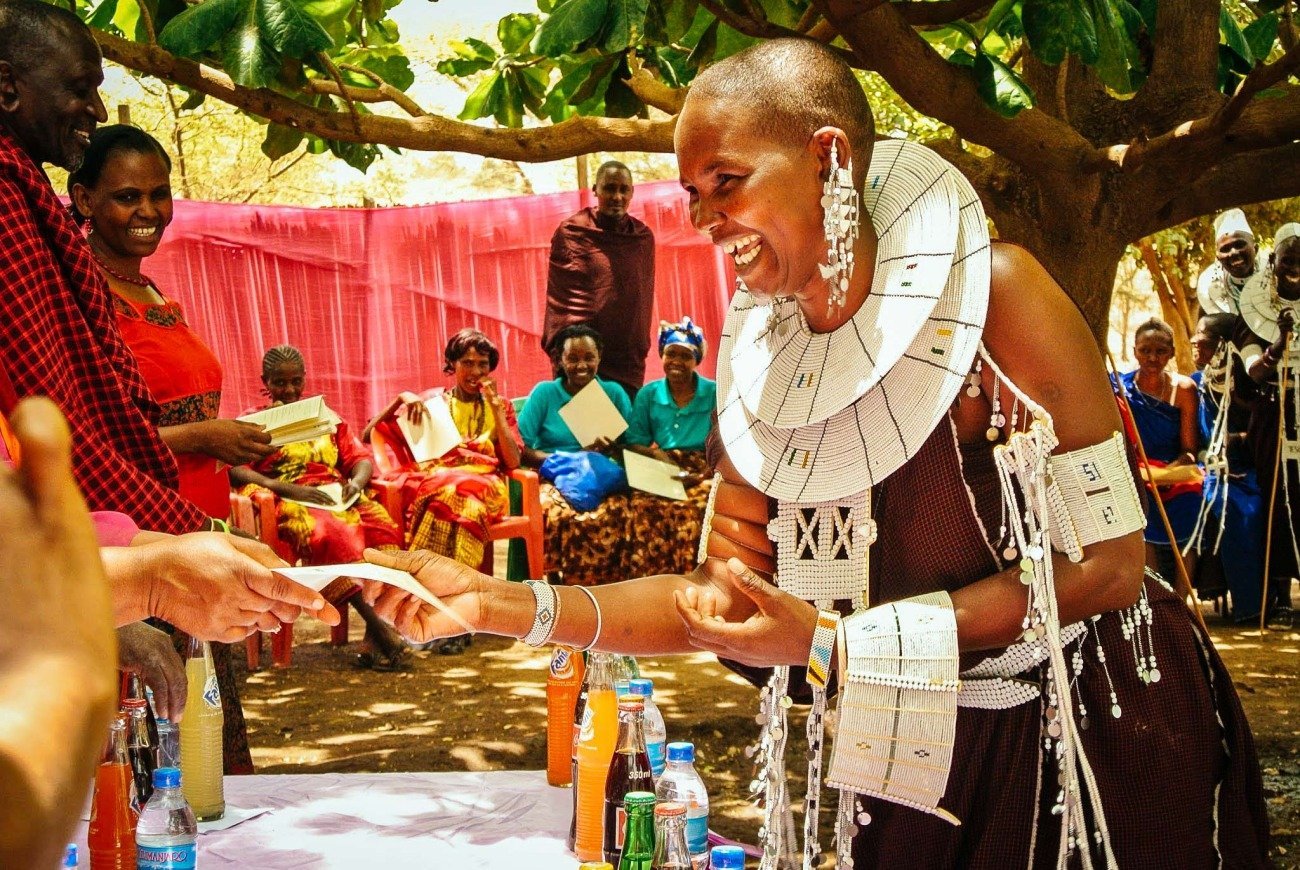Photos From Tanzania Women’s Empowerment Graduation
Participants in our Tanzania Women’s Empowerment programs received life-changing training and seed capital in 2013. We worked with them for a full year, with weekly monitoring visits to women in four groups in three vastly different communities. We helped them form savings and lending cooperatives, advised them on decisions for their businesses, and got to become part of their lives and families. For a year we celebrated with them their successes and mourned with them lost loved ones.
Before dawn on September 17, 2014, participants from Ilkiding’a and Unga Limited in the city of Arusha gathered for a bus trip to remote Engaruka, the site of their Women’s Empowerment graduation ceremony. The bus, full of joyful women and exuberant songs, exited the city and rolled to the west across the dry savanna. For some, it was their first time in the wilderness.
“What’s that thing?!” asked one, when we came across a family of long-necked creatures by the roadside.
“It’s a giraffe!” said the woman next to her.
After four hours, the bus pulled into the boma (traditional homestead) where the ceremony would take place. The women, meeting for the first time, greeted each other before gathering outside the entrance and forming a procession, bearing signs of biblical verses of celebration and thanksgiving. Four women led the procession, each with a candle representing one of the groups and how the fire they have within them will spread through their communities.
Over the next few hours, 76 women were recognized for completing the program. Government and religious leaders gave speeches, women’s groups performed songs they wrote for the occasion, girls sang poems, gifts were given, prayers were lifted. And at the end, they ate a feast together.
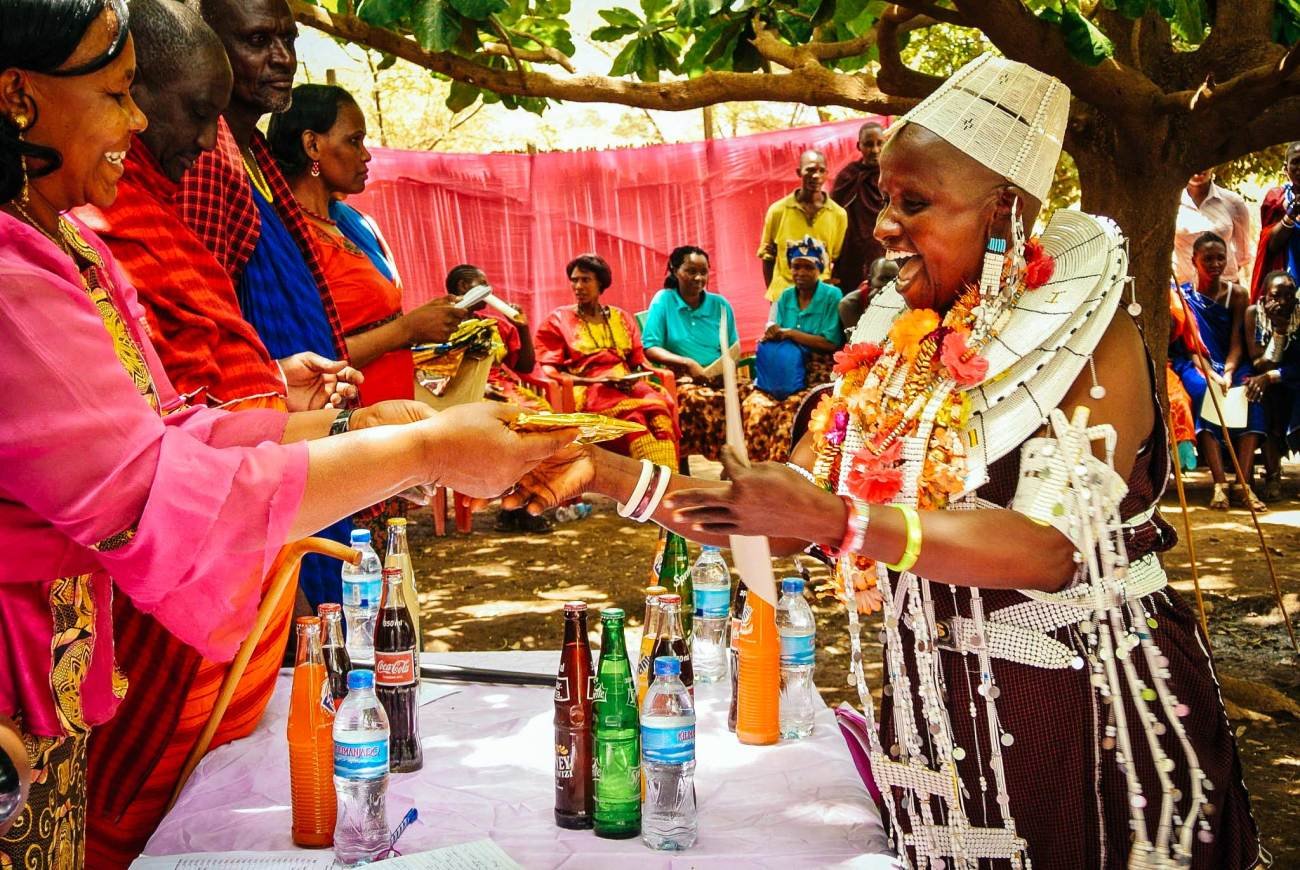
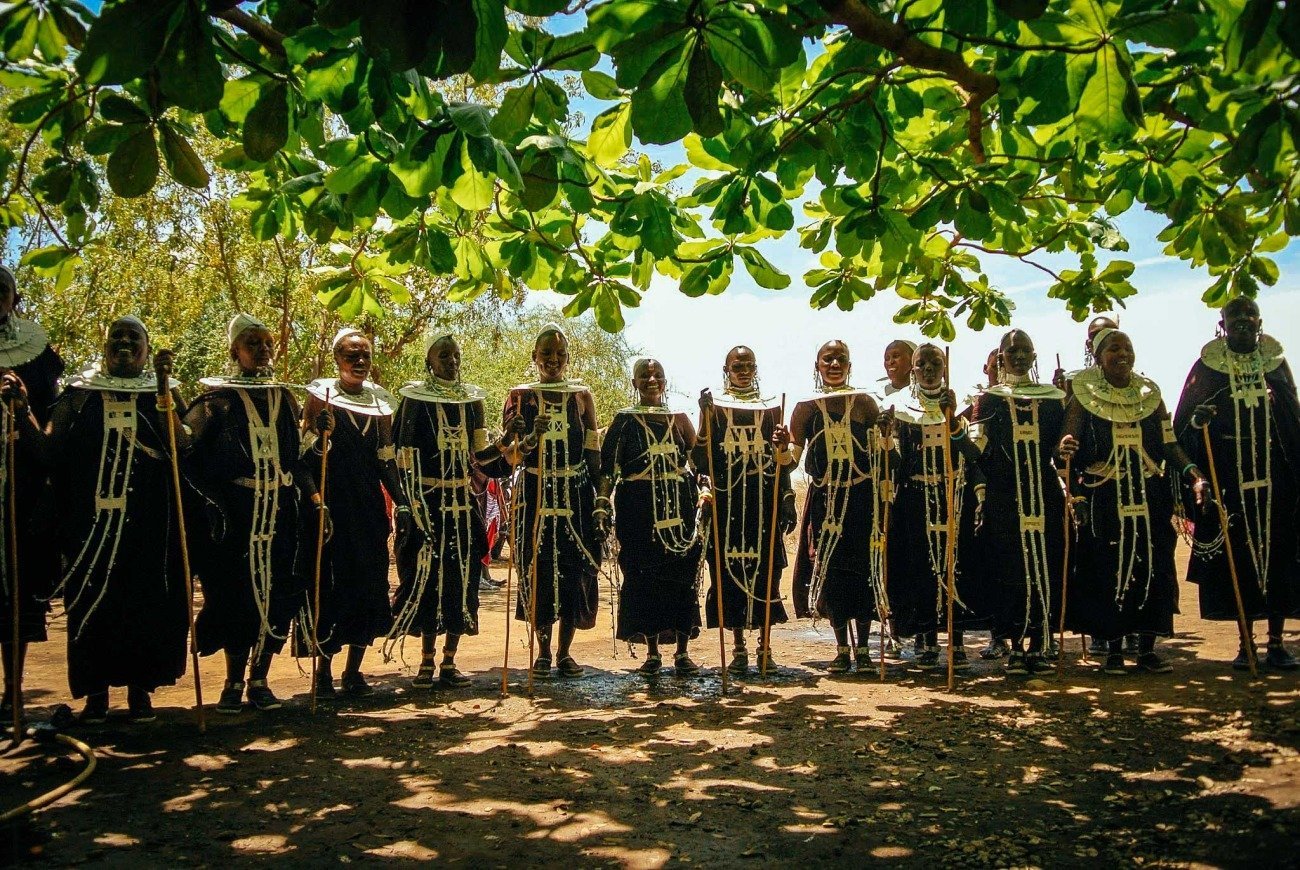
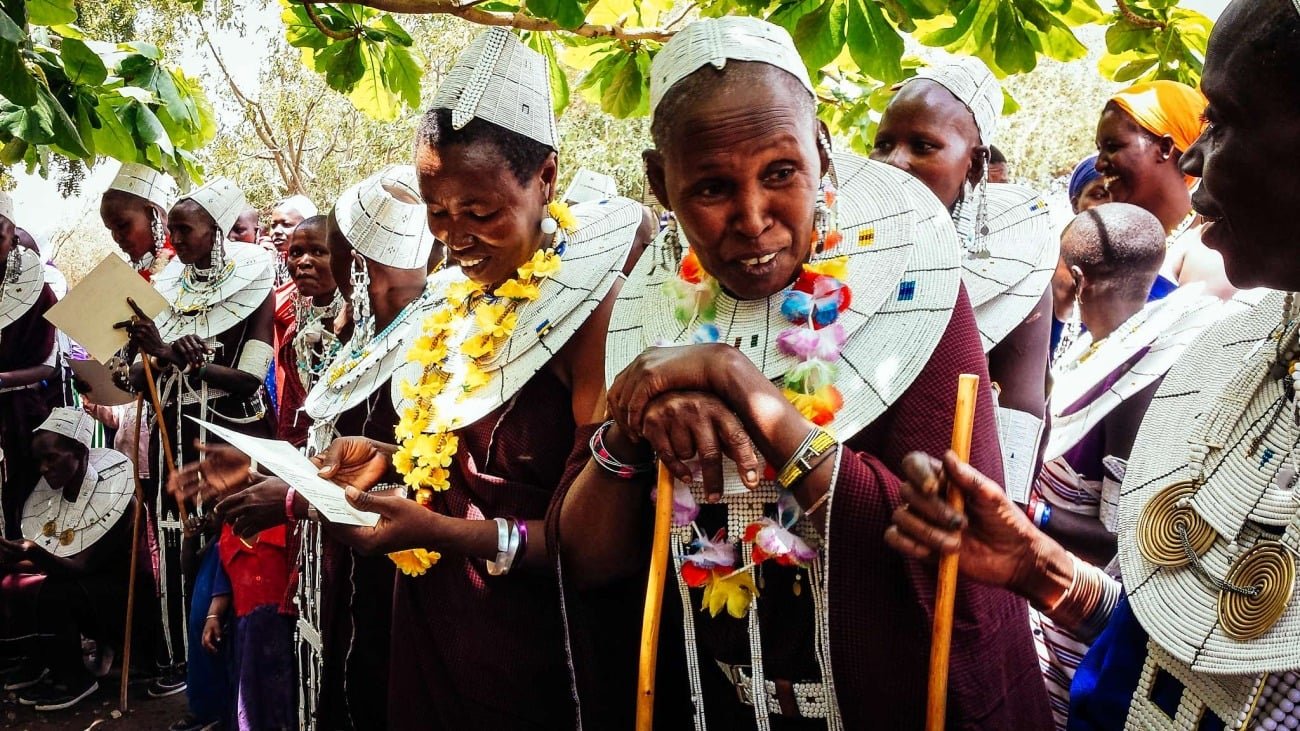
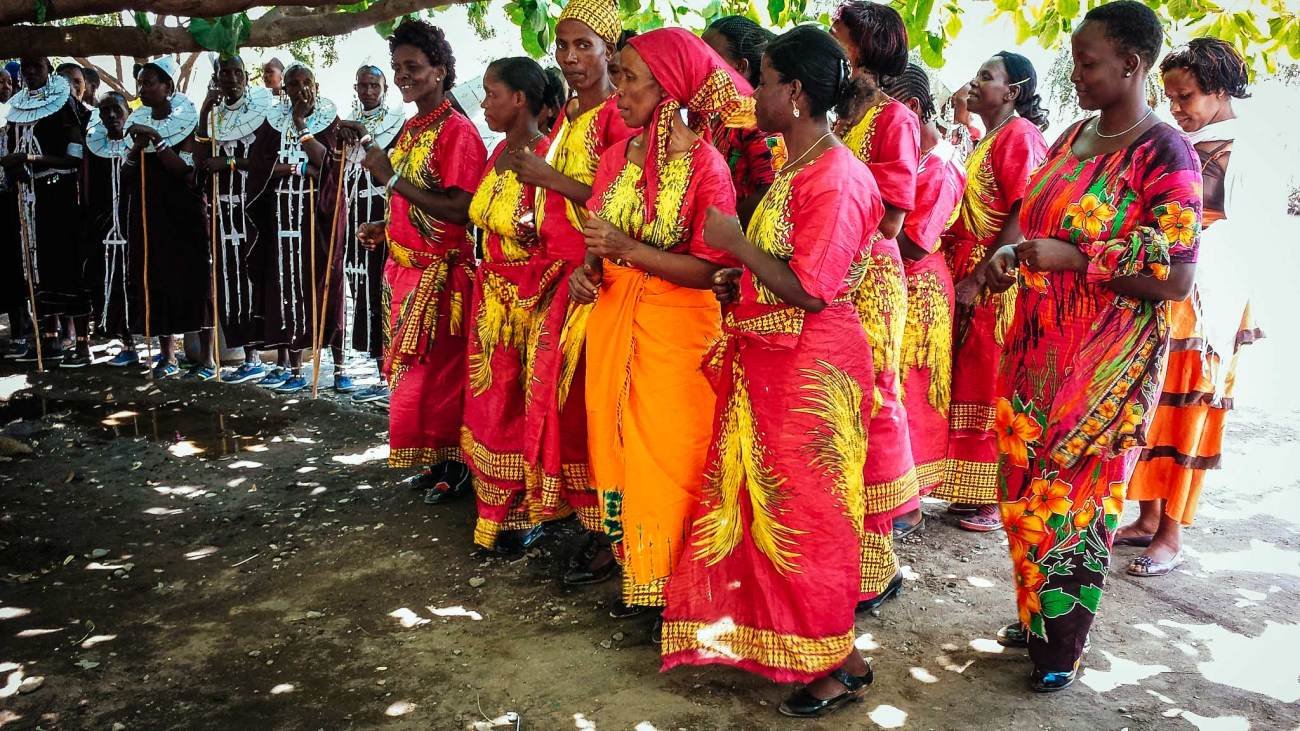
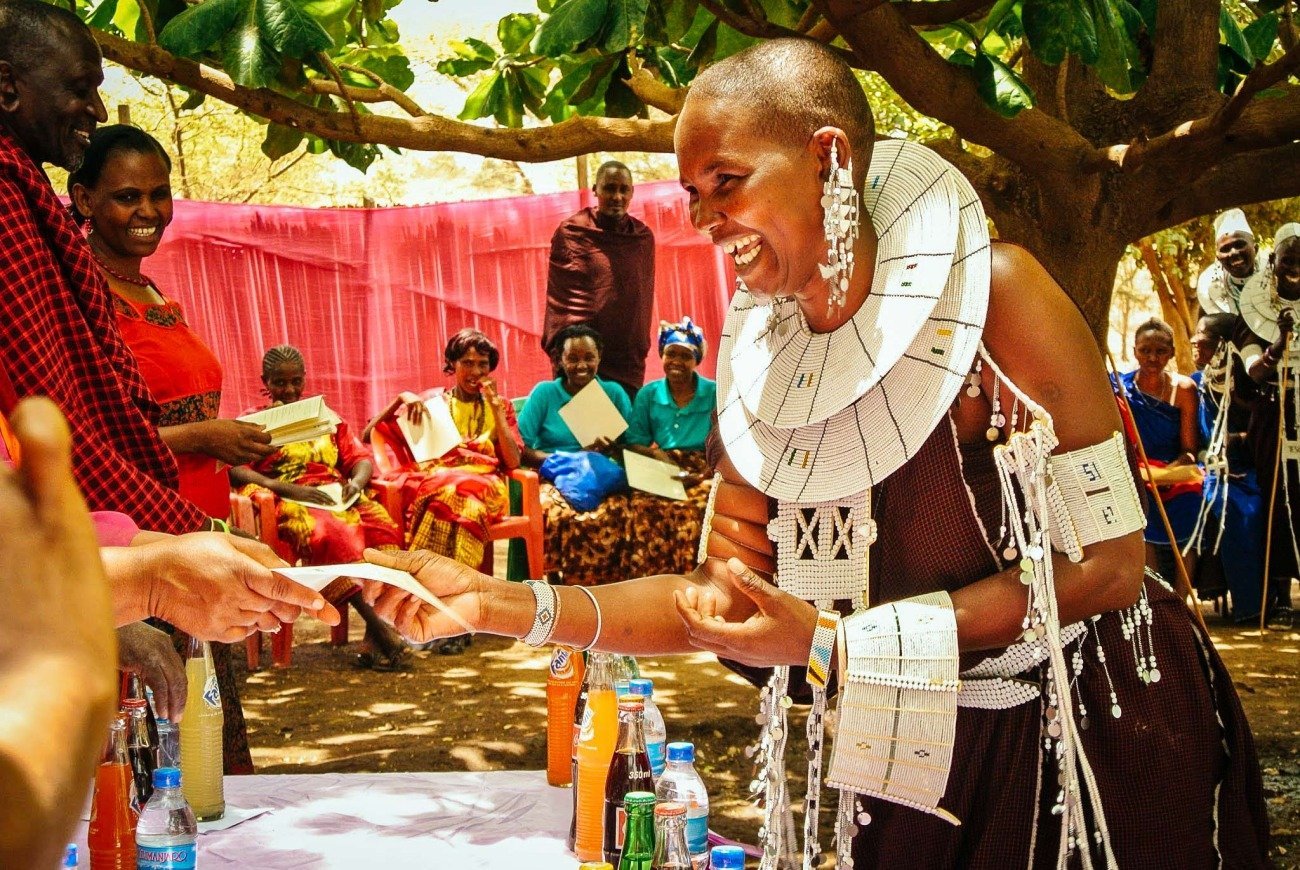
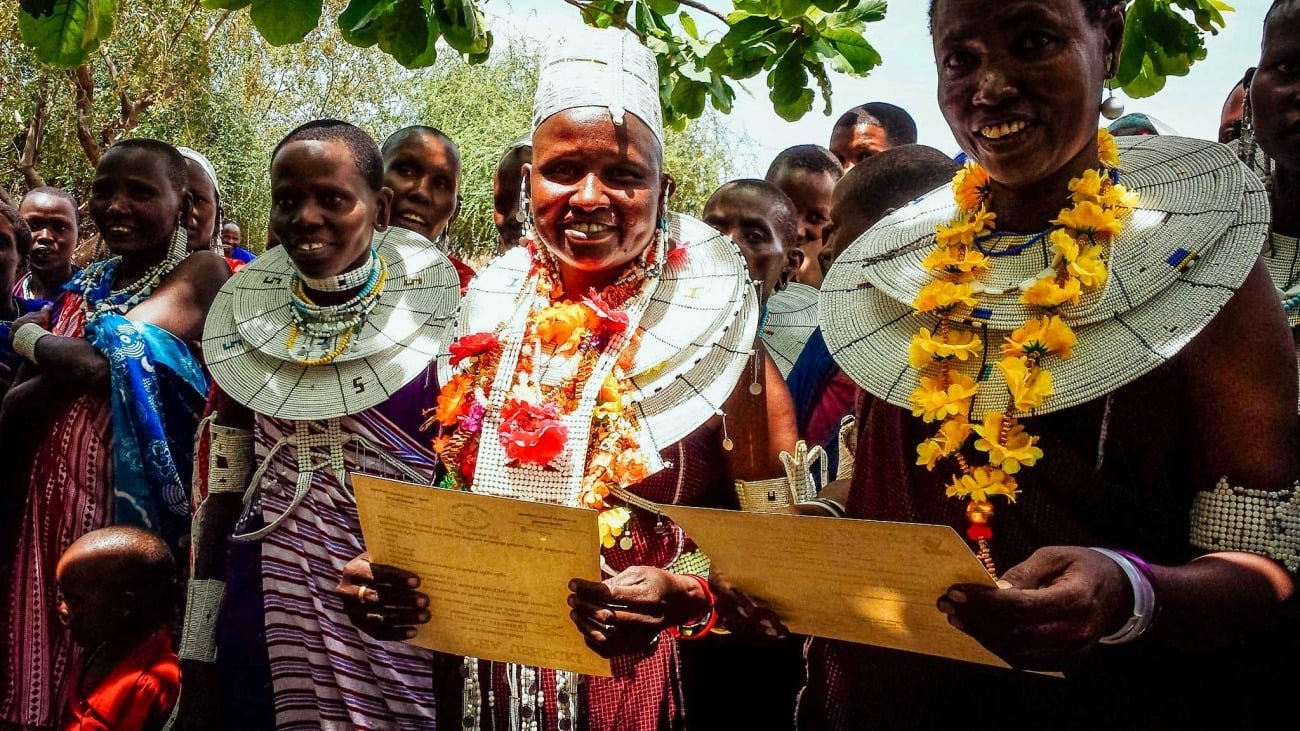
As the bus started for the journey back to town one participant from Engaruka, one of the women named Joyce said that she was so excited about the events of the day that she wouldn’t be able to sleeping that night. “I’m too happy,” she said.
A year ago, the women didn’t have the luxury of taking a day off because it would have meant their children wouldn’t eat that night. But now, they could attend and celebrate their accomplishments with their sisters. Their children are in school, there’s food back at home, and the participants have every reason to celebrate.

